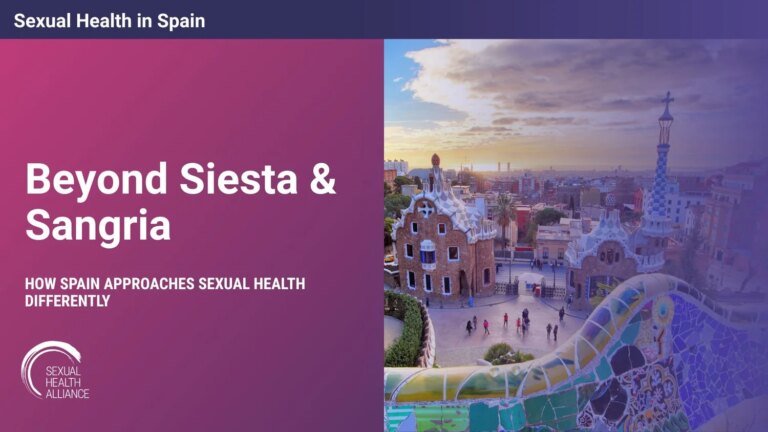Progressive Policies and Commitment to Equality
Catalonia, home of vibrant Barcelona, leads the way in Spain sexual health infrastructure and inclusive policymaking. The region’s Ministry of Equality and Feminism reflects Spain’s broader push for feminist, intersectional and global governance.
Through this section, Spain started the National Strategy for Sexual and Reproductive Rightsan integrated framework that promotes bodily autonomy, informed consent and health equity. This strategy positions sexual health not simply as a medical issue but as a fundamental human right linked to dignity, equality and justice.
Spain also made history as the The first predominantly Catholic nation to legalize same-sex marriage in 2005 – a full decade before the United States. This landmark reform demonstrated the country’s commitment to separating sexual rights from religious restrictions, inspiring other nations to promote LGBTQ+ equality worldwide.
Sex Education from Preschool to Adulthood
Catalonia has enshrined sexuality education as a key component of personal development, gender equality and the prevention of sexist and LGBT-phobic violence–it relies on five regional laws that confirm this right.
From 2022, comprehensive sexuality education (CSE) is compulsory in schools starting from pre-school, with age-appropriate curricula at every level of education. Counseling services have also been expanded to support students’ mental and sexual well-being.
In 2021, the Catalan government took another bold step ending subsidies for single-sex schools, stating that “segregation gives way to stereotypes and legitimizes sexism.”
Education does not stop at adolescence. Catalonia has introduced comprehensive training programs for health professionals to enhance LGBTQI+ health knowledge. Non-pathological units have also been expanded to improve transgender health careoffering hormone treatments, surgeries and psychological support for the past five years.
Reproductive rights and access to abortion – Sexual health in Spain
Spain guarantees the right to safe and legal abortion and Catalonia plays a central role. Catalonia accounts for almost 40% of all abortion centers nationwide.
In 2022, Spain updated its abortion care protocol to align with WHO recommendations, extending medical abortion from 9 to 14 weeks of gestation. The update also added access to free long-term contraception, psychological counseling and screening for gender-based violence, reinforcing a holistic approach to care.
Access to contraception has also expanded. For people under 30 years of age with childbearing potential, the government now provides free copper IUDs and hypodermic implants for low-income people or survivors of gender-based violence—with the goal of becoming world-free by 2026.
Menstrual health and wellness in the workplace
Spain also breaks even in the period. Since 2024, the government has distributed over half a million free menstrual products and introduced period health education in high schools.
Catalan civil servants also benefited from a progressive workplace flexibility policyallowing up to eight hours of recoverable time each month to manage menstrual or menopausal health needs. This initiative helps normalize conversations in the workplace about reproductive health and combats ageism, a step towards a more compassionate and inclusive work culture.
Ethical pornography
Spain is also home to a growing ethical pornography movement, led by creators such as Erica Lust and Paulita Pappell. These filmmakers have reimagined adult cinema by prioritizing consent, diversity, authentic pleasure and fair labor practices.
Erika Lust, founder of The porn chatcreated the nonprofit to equip parents and educators with tools to discuss pornography literacy, helping young people navigate online sexual content critically and ethically.
The rise of ethical porn in Spain aligns with wider social movements for gender equality, sexual rights and education reform. Through open discussion and creative expression, Spain is leading a cultural shift toward healthy, shame-free sexuality.
Sexual health in Spain: Sex work
Spain is one of the biggest sex work capitals in the world. When it comes to sex work, Spain’s approach remains complex. The country sex work was decriminalized in 1995and while laws limit solicitation near schools or public transportation, full regulation remains up for debate.
Barcelona was at the forefront—following a 2015 ruling recognizing the labor rights of sex workersincluding access to health insurance and social security. However, enforcement has been uneven and national talks are ongoing.
Prime minister Pedro Sánchez called for the criminalization of sex workciting police reports that four out of five sex workers are victims of trafficking or coercion. The debate reflects broader tensions between labor rights, feminist perspectives and anti-trafficking efforts.
Looking Ahead: Lessons from Spain
Barcelona stands out not only as a vibrant and inclusive city, but also as a living room for innovation and equality in sexual health. Spain’s commitment to comprehensive education, reproductive justice and gender equality offers a global model for integrating health and human rights.
As participants in SHA’s study abroad reflected, the trip underscored an important truth: sexual health flourishes where openness, empathy, and equality are valued.
Spain’s approach raises a vital question for all of us: How can we apply these principles globally to strengthen sexual health, education and justice?
